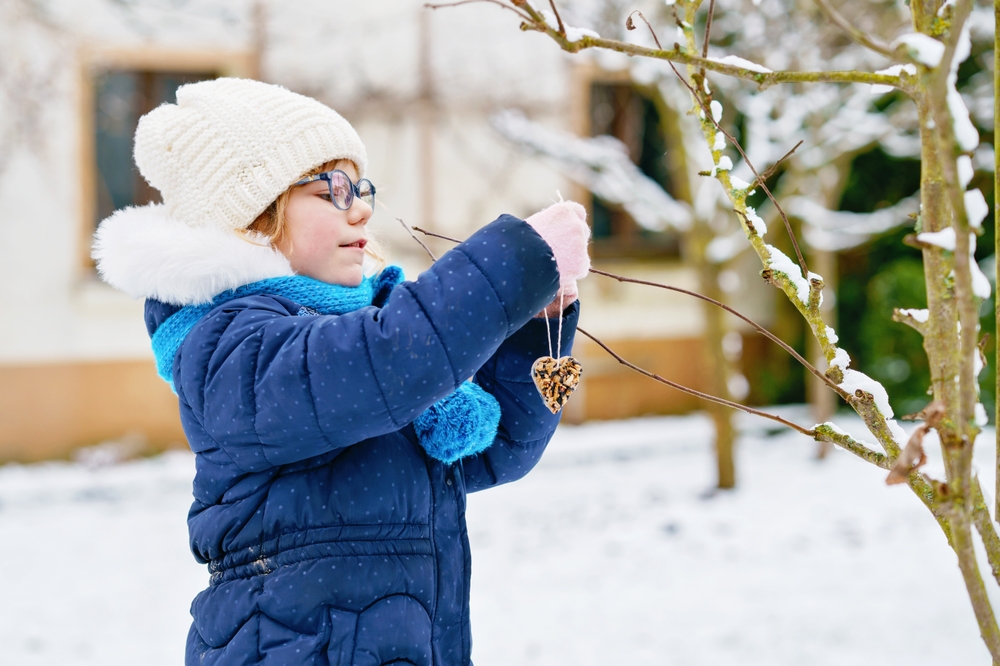As winter blankets the world in a glistening layer of snow, it presents a unique opportunity for children to engage in enriching activities that contribute significantly to their physical and cognitive development. In this blog from Let’s Grow Pediatrics in Edmond, OK, we explore the myriad benefits of winter activities for child development: how these experiences can foster growth, enhance motor skills, and promote overall well-being.
How Do Winter Activities Benefit Child Development?
- Physical Fitness: Winter activities provide an excellent avenue for children to stay physically active despite the colder temperatures. Whether it’s building snowmen, engaging in snowball fights, or learning to ski or skate, these activities promote cardiovascular health, strength, and coordination. The effort required for these winter pursuits contributes to the development of gross motor skills, enhancing balance and agility.
- Sensory Stimulation: The winter environment offers a sensory-rich experience for children. The feeling of crisp, cold air, the crunch of snow under their boots, and the sight of a snow-covered landscape all contribute to sensory stimulation. Engaging in activities like making snow angels or exploring textures through snow play can positively impact a child’s sensory processing abilities, fostering a more well-rounded sensory experience.
- Social Interaction: Winter activities often involve group play, fostering social interaction and cooperation among children. Building snow forts, collaborating on a snowman project, or sharing a sled ride all promote teamwork and communication. These social interactions are crucial for the development of social skills, emotional intelligence, and the ability to work harmoniously with peers – skills that extend beyond the winter wonderland.
- Cognitive Development: Winter activities present unique cognitive challenges for children. Planning and executing a snow fort construction, navigating a sledding path, or learning to balance on skates all require problem-solving skills and spatial awareness. These challenges contribute to the development of cognitive functions, including memory, attention, and executive functioning – skills that are foundational for academic success.
- Emotional Well-Being: The winter months can sometimes bring a sense of cabin fever, but engaging in outdoor activities helps combat the winter blues. Exposure to natural light, even on cloudy days, boosts serotonin levels, positively impacting mood and overall well-being. Winter activities also provide an opportunity for children to experience a sense of accomplishment, boosting their self-esteem and resilience.
- Adaptability and Risk Management: Navigating snowy and icy terrains requires adaptability and risk management skills. Winter activities inherently involve an element of unpredictability, teaching children to assess risks and make decisions accordingly. Learning to navigate challenges in a winter setting contributes to the development of resilience, adaptability, and a healthy understanding of risk-taking.
- Language Development: Winter activities provide an ideal backdrop for fostering language skills in children. Whether they are engaged in cooperative play, describing the texture of snow, or articulating their plans for a snow fort, these experiences contribute to language development. Winter activities become a canvas for expanding vocabulary, enhancing communication skills, and encouraging storytelling. The ability to express oneself effectively is a vital aspect of cognitive and emotional development.
- Fine Motor Skills Enhancement: Building snowmen, crafting intricate snowflakes, or even handling small objects like gloves and zippers in cold weather – all these activities require precise fine motor skills. The dexterity involved in manipulating snow into various shapes or fastening winter gear contributes to the refinement of fine motor skills. These skills, crucial for tasks like writing and buttoning, are honed naturally during winter play.
- Appreciation for Nature: Engaging in winter activities provides children with an opportunity to connect with nature. Observing the beauty of snow-covered landscapes, identifying animal tracks in the snow, or simply marveling at the unique patterns of snowflakes instills a sense of wonder and appreciation for the environment. Developing a connection with nature during the winter months fosters a lifelong love for the outdoors and environmental stewardship.
- Mind-Body Connection: Winter activities, whether it’s sledding down a hill or ice skating, require children to synchronize their movements with their intentions. The mind-body connection established during these activities is instrumental in developing spatial awareness, balance, and coordination. Understanding how their bodies move in different environments contributes to a more profound understanding of physical capabilities and limitations.
- Promoting Independence: Winter activities often present children with challenges that require independent decision-making. From choosing the best route for a sled ride to figuring out how to build a sturdy snow structure, these experiences encourage autonomy. The sense of accomplishment derived from successfully navigating these challenges instills confidence, promoting a healthy sense of independence and self-reliance.
- Multi-Sensory Learning: Winter activities provide a multi-sensory learning experience, engaging children on various levels. The cold air, the crunch of snow, the tactile sensations, and the visual stimulation – all these elements work together to create a rich learning environment. This multi-sensory approach not only enhances the learning experience but also supports the integration of information, leading to a more comprehensive understanding of the world around them.
Winter is a season of magic and wonder, and it offers a plethora of opportunities for children to grow and develop. Engaging in winter activities not only keeps children physically active but also contributes to their cognitive, social, and emotional well-being. As advocates for pediatric physical therapy, we encourage parents and caregivers to embrace the winter season as a time for holistic child development. By incorporating these activities into a child’s routine, we can create a foundation for a healthy and thriving future.
Let’s Grow Pediatrics Is Your Pediatric Physical Therapy Provider
At Let’s Grow Pediatrics in Edmond, OK, our pediatric physical therapy programs are designed to cater to the unique needs of each child. We create a supportive and fun environment where children can explore their physical abilities, overcome challenges, and build confidence. Our expert therapists use a range of activities, exercises, and play-based interventions to target specific gross motor skill areas. Whether it’s improving balance, coordination, strength, or mobility, we work closely with children and their families to set achievable goals and track progress. Call us today at 405-562-3485.


